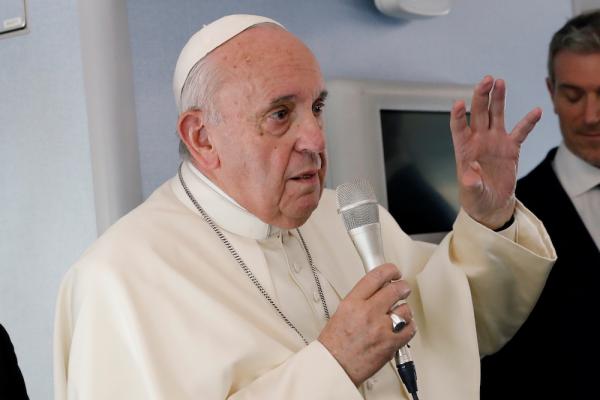Nov 30, 2019
Two years after the Vatican State signed the Treaty on the Prohibition of Nuclear Weapons (currently ratified by 34 countries), he declared during an in-flight press briefing from Japan to Rome, “Not only their use, but also possessing them: because an accident or the madness of some government leader, one person’s madness can destroy humanity.”
Read the Full Article

Already a subscriber? Login
